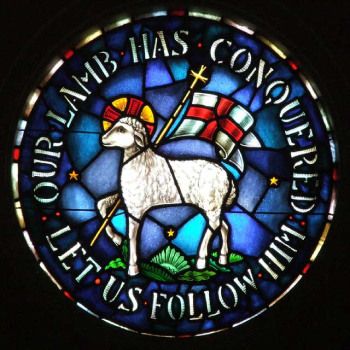 Discover Count Nicolaus Ludwig von Zinzendorf's commitment to meaningful religious life and his missionary zeal that spread the gospel around the globe. Nicolaus Ludwig von Zinzendorf, born to Austrian nobility, was influenced by Pietistic preaching and founded the Moravian Missions. The Pietist were a group of zealous Christians that are known as the instruments of the Second Phase of the Reformation. Church life tended to be shallow, and that meaningful religious commitment on the part of church members was frequently lacking. Christianity was, for the most part, was something done rather than a lifestyle.
Discover Count Nicolaus Ludwig von Zinzendorf's commitment to meaningful religious life and his missionary zeal that spread the gospel around the globe. Nicolaus Ludwig von Zinzendorf, born to Austrian nobility, was influenced by Pietistic preaching and founded the Moravian Missions. The Pietist were a group of zealous Christians that are known as the instruments of the Second Phase of the Reformation. Church life tended to be shallow, and that meaningful religious commitment on the part of church members was frequently lacking. Christianity was, for the most part, was something done rather than a lifestyle.
The Pietist were primarily interested in the religious renewal of the individual, belief in the Bible as the unfailing guide to faith and life, a complete commitment to Christ that must be evident in the Christian's life, the need for devotional materials, sermons and yes, even hymns.
UNITED BRETHREN
In 1722 a group of Waldensians and Moravians banded together to form the Unitas Fratrum (United Brethren). After being almost wiped out by the Counter-Reformation, the remnant, under the leadership of Christian David, migrated to Saxony, where Count Nicolaus Ludwig von Zinzendorf gave them refuge on one of his estates near Dresden Germany. Known as Herrnhut (The Lord's Watch), this colony became the source and center of a missionary movement destined to circle the globe.
Count Nicolaus Ludwig von Zinzendorf himself became a preacher and later bishop in this flourishing community of believers. Their peculiar style involved a twenty-four hour a day prayer watch, radical evangelical preaching, songfests, love feasts, and private devotions. Their emphasis was on fellowship instead of ecumenical creeds. The Count himself declared, "I have one passion; it is He and He alone."
MISSIONS CALLING
The missionary calling came about strangely. Count Nicolaus Ludwig von Zinzendorf, on a visit to Copenhagen in 1730, met a man from the West Indies and two Eskimos from Greenland, each of whom pleaded for missionaries. He was deeply moved by the appeal and decided to do something about it. On his return to The Lords Watch, he placed the challenge before the group. The response was immediate and enthusiastic. Let us go!
Their first mission (1732) was to the slaves on the Danish island of St. Thomas in the Virgin Islands. Greenland was next, in 1733, and St. Croix, also in the Virgin Islands, in 1734. Ten of this last group died in the first year: but many others were recruited to fill the depleted ranks. Other mission fields opened; Surinam (1735), South Africa (1737), the North American Indians (1740), Jamaica (1754), and Antigua (1756). Between 1732 and 1760, 226 Moravians entered ten foreign countries.
Within twenty years their missionary work had started more missions than the Anglicans and Protestants had begun during the two preceding centuries. No other denomination has maintained as many churches as the Moravian Church throughout its history.
Their success was because they recognized that evangelization of the world was the most pressing of all the obligations that rested upon the Christian Church and that the carrying out of this duty was the "common affair" of the Church.
UNLEARNED MEN
In almost every place their endeavors bore fruit so that before long they had three members on the mission field for everyone at home. Men accomplished all this with little formal and theological education. Like the early apostles they were "unlearned and ignorant men," and like them, they were despised by the cultured people of their day. The first two missionaries to Greenland were gravediggers. But they were men of passion and piety. What they lacked in knowledge they made up in an anointed zeal and apostolic fortitude.
When these missionaries left their home church, they were provided with their fare. On reaching their destination, they were expected to fend for themselves. They took their wives and little ones with them. They lived and died and were buried in the land of their adoption.
EXPERIENCING GOD
In conclusion, it should be noted that Count Nicolaus Ludwig von Zinzendorf stressed one crucial issue that should be echoed in our generation, "the importance of experiencing God." That's what I call a Jesus experience!
Although we do not hear much about the Moravians, I believe they were full of the Spirit. Their missionary zeal is but a confirmation of the scripture, "And they went out and preached everywhere, while the Lord kept working with them and confirming the message by the attesting signs and miracles that closely accompanied (it)" Mark 16:20 (AMP).
© by Jonas Clark
www.jonasclark.com
-STAY INFORMED
GET THE FREE JONAS CLARK REVOLUTIONARY REVIEW